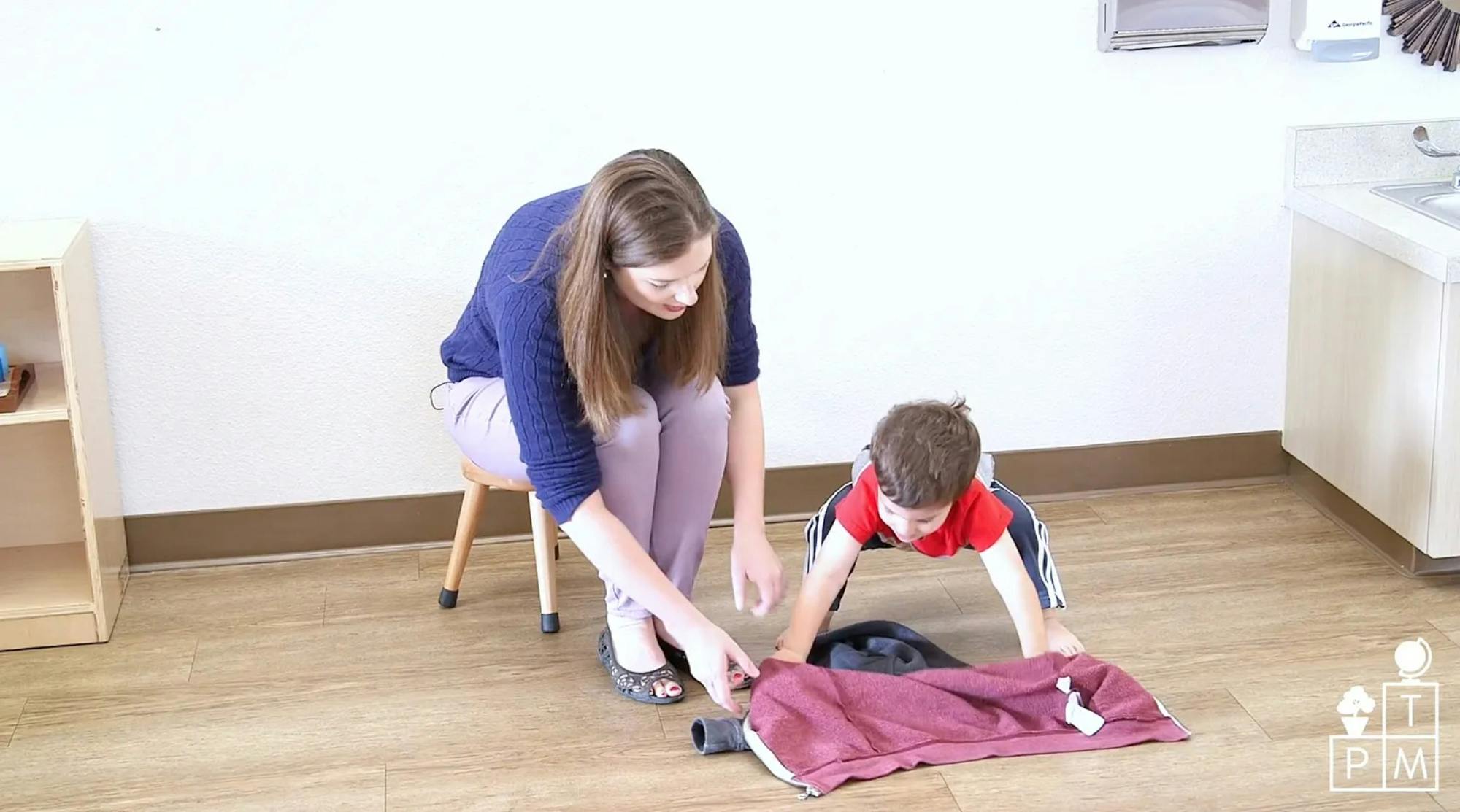An early advantage
Originally published on Higher Ground Education's Substack Feed
Matt Bateman
VP of Pedagogy
Happy Friday, everyone.
One of the things we teach our toddlers is how to independently put on a coat or jacket.
Putting on a coat is a surprisingly difficult task. One has to sort of wriggle one’s shoulders into it without having a clear line of sight. This is why it’s nice when someone helps you with a coat, even as an adult. For a toddler, it’s impossible to do without help.
Enter the “Montessori coat flip”.
If a toddler lays out a jacket on the floor, open and upside-down, she can put her arms into it and flip it over her head all at once. If you’ve never seen it in action, definitely check out our Prepared Montessorian training video.
Delightful. But here’s a surprisingly difficult question to answer: why does it matter? We spend a lot of effort teaching toddlers a clever way to put on their own jackets. Why bother?
It’s clearly not because this is the critical period for learning this particular skill. Most toddlers don’t learn how to put on their jackets themselves. All adults can independently put on their jackets. This is something that everyone eventually learns, without special instruction. So, again: why do we offer this special instruction? Why not just wait until the child is physically developed to the point where it’s pretty easy, where they can basically just figure it out?
Another answer, more plausible, is that it’s convenient for toddlers to be able to dress themselves. It’s one less thing we have to do for them. This is true, especially in the context of group care, where a small number of adults have to worry about dressing a large number of children to go outside. There’s something to this, but the reason we teach this isn’t really for the adult’s convenience.
My answer, which I imagine many of you have also arrived at: it is more exciting for a toddler to be able to put on her own jacket than it is for an older child. It is precisely the fact that it is a difficult task for a 1- or 2-year-old child that makes it worthwhile.
The toddler gets a well-earned shot of confidence and self-esteem from independently putting on a jacket. For her, it’s a novelty and a triumph. It is a real thing that grownups do that she can, with effort, do herself. Doing so challenges her intelligence and her coordination. With cunning, she meets her own need. Across hundreds of such cases in early childhood, her core estimate of herself permanently rises.
The older child does not and cannot have this experience of putting on a jacket. Years later, it’s not as hard and it’s more mundane. The intrinsic challenge and interest of the task have been lost. So too has the opportunity to use putting on one’s own jacket to achieve the deep, soul-level impact of increased self-worth and self-trust.
This pattern generalizes into other areas of Montessori education. We do something earlier because it’s more motivating and has a deeper indirect impact. Certain habits, like routine handwashing, are more easily formed when the tasks underlying those habits have their intrinsic draw: toddlers universally love sinks and soap; elementary students not so much. And habits of hygiene are no small thing in life. Or take literacy. If an older child learns the alphabet for the first time, it’s less interesting, for a variety of reasons, and requires more rote drilling. If a 3-year-old child learns the alphabet, it’s full of wonder and significance.
Sometimes parents and educators get understandably cynical about what can feel like endless attempts to rush childhood, to push learning earlier, to gain some sort of developmental-academic leg up in the rat race.
But Montessori saw that, for many things, if you do it right—which requires cleverness and craft, as the Montessori coat flip indicates—you’re actually making the most of childhood by teaching them earlier. Early learning isn’t just earlier, it has a qualitatively different motivational profile and characterological impact. The advantage isn’t that you grow up more quickly. It’s that you grow up more joyfully, more independently, more capably.
Have a great weekend,
Matt Bateman
Executive Director, Montessorium
Meet the Author
Matt Bateman
Dr. Matt Bateman earned his Ph.D. in Philosophy in 2012 from the University of Pennsylvania. He taught and continued his research at Franklin and Marshall College in the Department of Psychology, on topics ranging from neuroscience to evolutionary theory to philosophy, before joining the LePort Schools as Director of Curriculum and Pedagogy in 2014. In 2016, Dr. Matt Bateman became a founding member of Higher Ground Education. He is now Vice President of Pedagogy for Higher Ground and the Executive Director of Montessorium.

